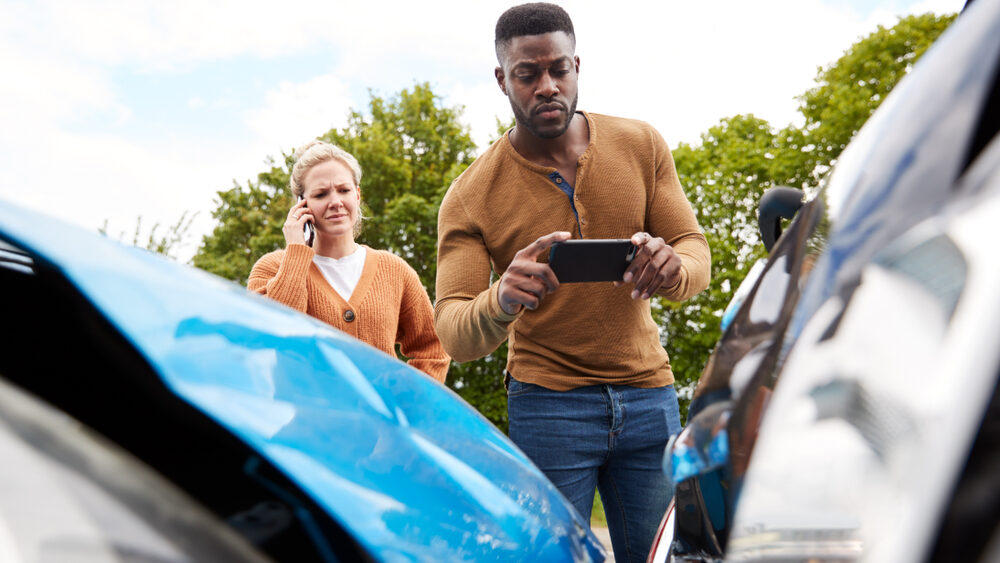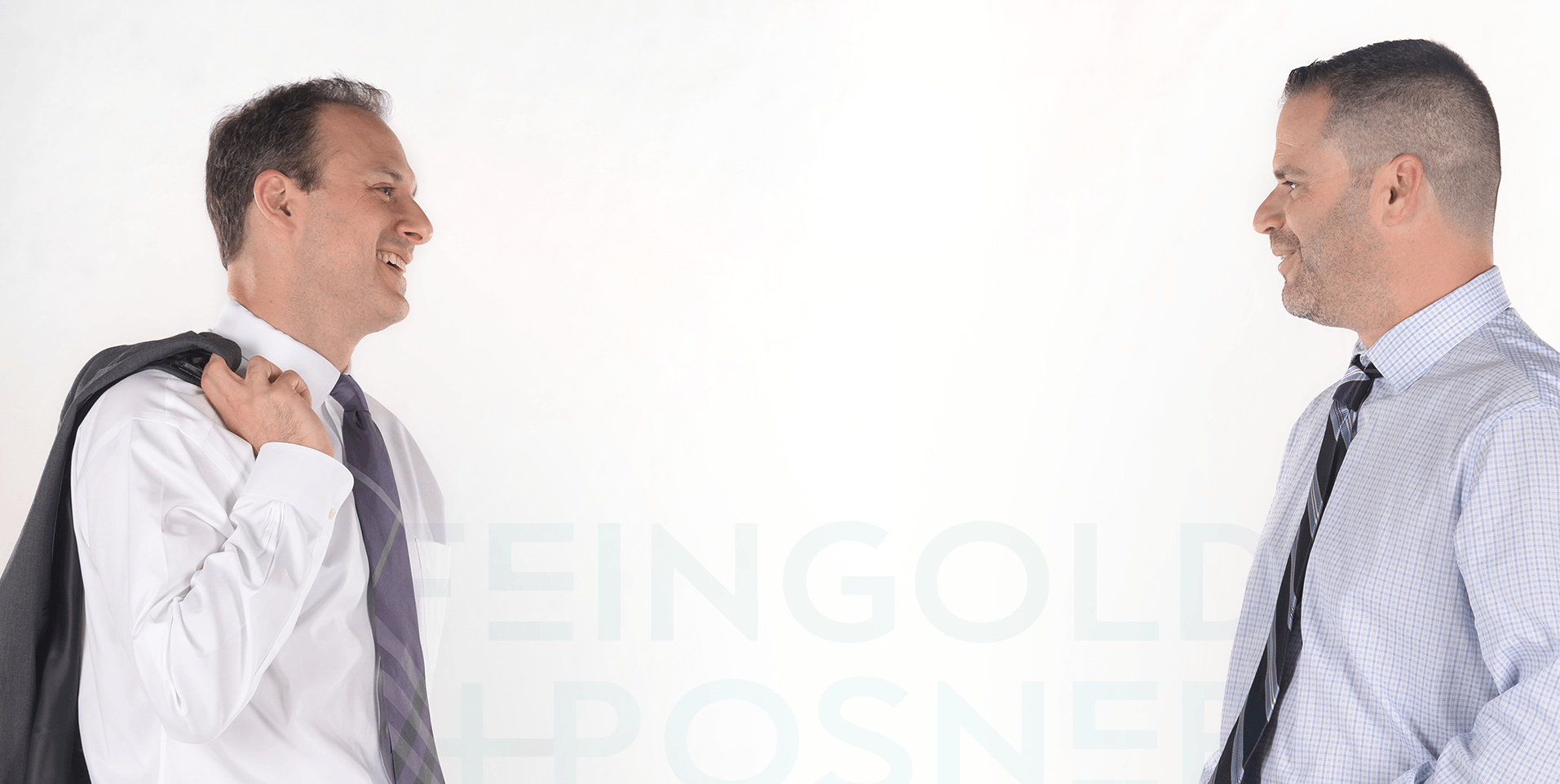The First 72 Hours: Critical Steps to Take After an Auto Accident in Florida
November 09, 2023

Auto accidents can be traumatic, stressful, and confusing. Amidst the chaos and emotional turmoil, it’s essential to remember the crucial steps you need to take right after the crash, especially in Florida. By acting prudently within the first 72 hours, you can protect yourself and your rights and ensure a smoother recovery process. This comprehensive guide by Feingold & Posner, P.A., will walk you through these vital steps.
STEP 1: Critical Immediate Actions Post-Accident
Experiencing a car accident can be a disorienting and stressful event. In the immediate aftermath, it’s imperative to take specific steps not only for your safety but also for potential legal and insurance implications down the road. Here’s a comprehensive guide to the actions you should prioritize right at the scene of a car accident in Florida:
Stay Calm and Assess the Situation
Your immediate reaction may be shock or panic. Take a few deep breaths. Keeping a clear head will allow you to make informed decisions.
Prioritize Safety
Before anything else, determine if you or any passengers have sustained serious injuries. If your vehicle poses a safety risk (e.g., it’s in the middle of a busy highway) and it’s drivable, move it to a safer location nearby. However, don’t leave the scene of the accident. If it’s safe to do so, turn off your vehicle’s ignition and activate your hazard lights.
Contact Authorities
Even if the accident appears minor, it’s always a good practice to call the police. They can file a report, which can be valuable when dealing with insurance companies or potential legal actions. If there are injuries, request medical assistance immediately.
Exchange Pertinent Information
Approach the other driver calmly and exchange relevant details, including:
- Full name and contact information
- Insurance company and policy number
- Driver’s license and license plate number
- Vehicle type, model, and color
Document the Incident
- Take Photos: Capture images of the damage to all vehicles involved, any injuries, license plates, the overall accident scene, traffic signs, and any skid marks or debris.
- Draw a Quick Sketch: If possible, draw a rudimentary diagram of the accident, indicating vehicle positions, directions of movement, and lanes.
- Collect Witness Information: If there were bystanders or other witnesses, gather their names and contact details. They might provide an essential perspective if there are disputes about what occurred.
Avoid Speculation and Admitting Fault
Stick to the facts when talking to anyone at the scene. Do not speculate about what might have caused the accident, and never admit fault, even if you believe you might have been responsible.
Inform Your Insurance Company
Even from the scene, if possible, call your insurance agent or company’s hotline to report the accident. They’ll provide guidance on the next steps.
Stay at the Scene
Don’t leave the accident scene until it’s appropriate to do so. Leaving before it’s the right time, especially if there are injuries, can result in legal consequences.
Gather Personal Items
Before leaving, ensure you have all your personal belongings from the car, especially if it’s undrivable.
STEP 2: Medical Treatment and Documentation Post-Accident
In the aftermath of an auto accident, addressing medical needs is paramount. Even if you feel okay, some personal injuries may not manifest symptoms immediately. Beyond ensuring your well-being, proper medical treatment and documentation can significantly impact any legal or insurance claims related to the accident. Let’s delve into the importance and process of securing medical treatment and maintaining thorough documentation post-accident in Florida:
Seek Immediate Medical Attention
- Self-assessment: Even minor accidents can cause injuries. Quickly check yourself for any visible injuries or pain.
- Call 911: If you or anyone involved has apparent injuries or is in pain, call for an ambulance immediately.
- Don’t Decline Medical Attention: Even if you feel okay, accept medical attention at the scene. The adrenaline rush after an accident can mask pain or injuries.
Visit a Healthcare Facility
- Emergency Room (ER): If injuries are severe, visit the ER. They’re equipped to handle traumatic injuries and can run necessary tests like X-rays or MRIs.
- Primary Care or Urgent Care: If injuries seem less severe, still see a doctor within 24 hours of the accident. This ensures that hidden injuries like concussions or internal injuries get detected early.
Maintain a Detailed Record
- Medical Records: Secure copies of all medical treatments, diagnoses, and recommendations. These records are crucial for insurance claims and potential legal actions.
- Keep Receipts: Retain all receipts related to medical expenses, including prescriptions, medical devices (like crutches), and over-the-counter medications advised for treatment.
- Maintain a Symptom Diary: Document daily how you feel, pain levels, and any new symptoms that emerge. This diary can paint a picture of your recovery process.
Follow All Medical Recommendations
- Consistent Treatment: Skipping appointments or not following treatment advice can not only hinder your recovery but can also be used against you if you claim prolonged injuries.
- Physical Therapy or Rehabilitation: If advised, undergo any therapy or rehabilitation to aid your recovery. This can also serve as evidence of the extent of your injuries.
Consult a Specialist if Needed
Injuries like traumatic brain injuries, spine injuries, or internal damage might require specialized care. Ensure you’re seeing the right experts for your injuries.
STEP 3: Reporting to Insurance and Authorities
Once your immediate health concerns are addressed, it’s time to focus on the procedural aspects related to insurance and legal reporting:
Notify Your Insurance Company
Report the accident to your insurance company as soon as possible, even if you weren’t at fault.
Factual Reporting
When discussing with insurers or authorities, provide an honest account without speculating or guessing. Don’t admit fault or liability.
Know Your Policy and Legal Requirements
Know what your insurance covers, such as medical expenses, property damages, and rental cars. This can be crucial during recovery and repairs. If damages exceed a certain amount or if there are injuries, it’s required by Florida law to report the accident to the DMV.
STEP 4: Seeking Legal Guidance
In the wake of an auto accident, professional legal guidance is invaluable:
Consult an Attorney Early
Before settling with insurance companies, it’s advisable to consult with an experienced attorney. Feingold & Posner, P.A., can provide expert advice tailored to Florida’s specific laws and regulations.
Understand Your Rights
Florida is a no-fault insurance state, but understanding your rights beyond the Personal Injury Protection (PIP) limit is essential.
Preserve Evidence
All the documentation, photos, and records you’ve gathered can be invaluable. Your attorney can guide you in organizing and preserving them.
Discuss Claims and Settlements
An attorney can evaluate the value of your claim, considering medical expenses, lost wages, pain and suffering, and other factors.
Contact an Experienced Car Accident Lawyer at Feingold & Posner, P.A. for a Free Consultation About Your Case Today
The moments after an auto accident can be overwhelming. But remembering these steps and acting promptly can profoundly impact your recovery, both physically and financially. If you or a loved one have recently experienced an auto accident in Florida, don’t navigate the complex legal landscape alone. Let Feingold & Posner, P.A., stand by your side and guide you through every step to ensure you receive the compensation and justice you deserve.
Contact us today for a comprehensive consultation.

★
★
★
★
★
“These lawyers are not only very efficient, but caring as well. I would not hesitate to refer them to anyone.”
MATTHEW T. / FORMER CLIENT



